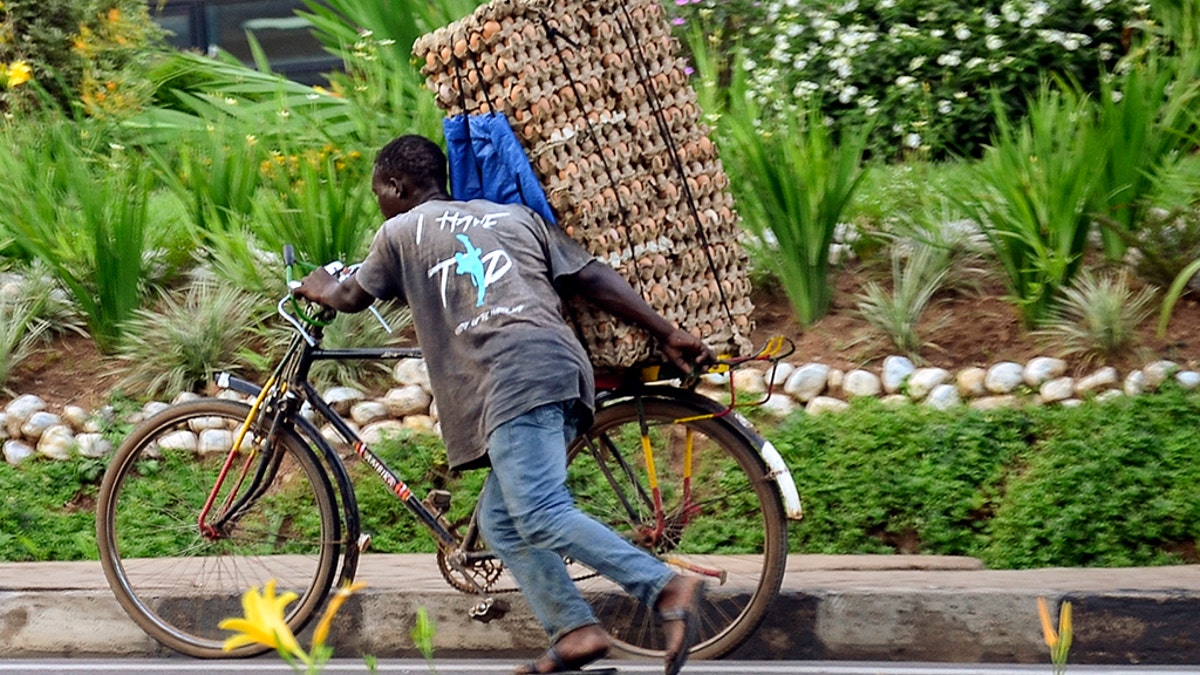Fox News Flash top headlines for April 5
Fox News Flash top headlines are here. Check out what's clicking on Foxnews.com.
Get all the latest news on coronavirus and more delivered daily to your inbox. Sign up here.
KIGALI, Rwanda (AP) — A valley dam that authorities in Rwanda say could contain about 30,000 bodies has been discovered more than a quarter-century after the country’s genocide in which 800,000 ethnic Tutsi and Hutus who tried to protect them were killed.
The discovery is being called the most significant in years, and 50 bodies have been exhumed so far in efforts that are challenged by the East African nation’s coronavirus-related lockdown.
Rwanda on Tuesday marks the 26th anniversary of the genocide, but because of the lockdown the country will follow events on television and social media as gatherings are banned.
Word of the valley dam and the bodies it held emerged as many people convicted in the genocide are being released from prison after serving their sentences and offering new information on mass graves. Other information on the dam came from nearby residents.

In this photo taken Thursday, March 26, 2020 a man transports cartons of eggs on the back of a bicycle due to restrictions on movement attempting to halt the spread of the new coronavirus, in Kigali, Rwanda. The new coronavirus causes mild or moderate symptoms for most people, but for some, especially older adults and people with existing health problems, it can cause more severe illness or death. (AP Photo)
“The challenge we face now is that the valley dam contains water, but we are trying to dry it up,” Naphtal Ahishakiye, the executive secretary of genocide survivor organization Ibuka, told The Associated Press. The valley is outside the capital, Kigali, in the country’s east.
SOUTH AFRICAN CRACKDOWN AMID CORONAVIRUS LOCKDOWN CALLED INTO QUESTION AS SOME IGNORE RESTRICTIONS
Authorities said the dam was dug years before the genocide to provide water for rice farming.
Every now and then, as graves of genocide victims are discovered, some survivors question whether true reconciliation can be realized if perpetrators of the killings conceal information about where people were buried.
CLICK HERE TO GET THE FOX NEWS APP
Exhuming bodies during the coronavirus pandemic is very challenging since people cannot gather, Ahishakiye said. “But we try our best so that we give the dead a decent burial.”









































